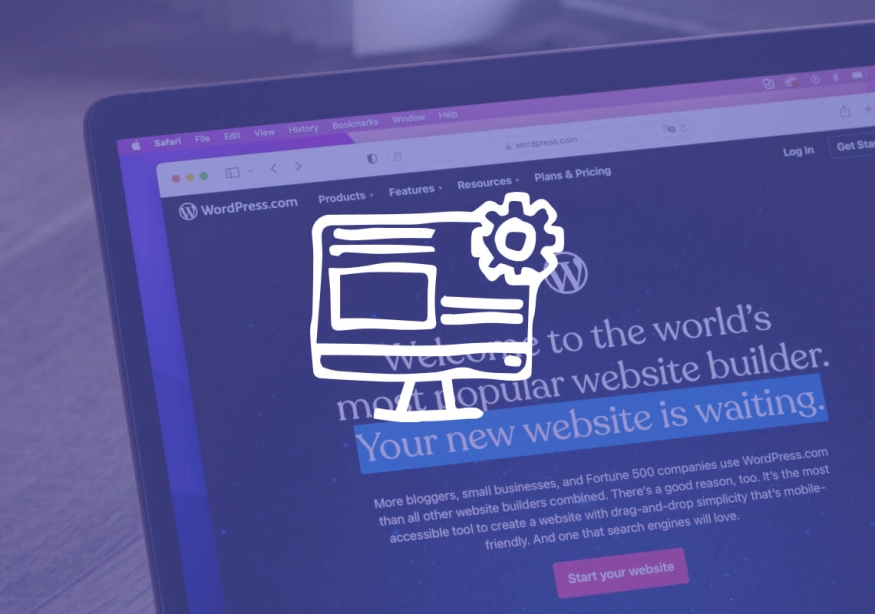The Ultimate Guide to Pardot Marketing Automation
In today's fast-paced digital landscape, marketers have to find innovative ways to capture and retain their audience's attention. One such solution is Pardot Marketing Automation. This powerful tool streamlines marketing processes and empowers businesses to engage with their prospects and customers on a whole new level. In this ultimate guide, we will delve into the world of Pardot Marketing Automation, covering everything from its definition to its key features, setting it up for your business, enhancing marketing strategies, analyzing results, and best practices for using Pardot effectively.
Understanding Pardot Marketing Automation
Defining Pardot Marketing Automation
Pardot Marketing Automation is a comprehensive platform that enables businesses to automate their marketing activities, streamline the lead management process, and effectively nurture their prospects through the buyer's journey. It provides marketers with a suite of tools that empower them to deliver personalized and relevant content to their audience, ultimately driving conversions and revenue.
Key Features of Pardot Marketing Automation
Let's explore some of the key features that make Pardot Marketing Automation a game-changer for businesses:
Lead Scoring and Grading: Pardot allows you to prioritize leads based on their engagement level, ensuring that your sales team focuses on the most qualified prospects.
Email Marketing: With Pardot, you can create and send targeted email campaigns, nurturing your leads and driving them further down the sales funnel.
Forms and Landing Pages: Easily create customized forms and landing pages to capture valuable prospect information and generate leads.
Automated Campaigns: Pardot enables you to set up automated drip campaigns, delivering the right message at the right time to nurture your leads.
Social Media Integration: Connect your social media accounts to Pardot and leverage social data to further engage with your prospects and enhance your marketing efforts.
One of the standout features of Pardot Marketing Automation is its robust lead scoring and grading capabilities. With this feature, you can assign scores to your leads based on their interactions with your marketing materials. This allows you to identify the most engaged and interested prospects, ensuring that your sales team focuses their efforts on those with the highest potential for conversion. Additionally, Pardot's lead grading feature allows you to evaluate the quality of your leads based on criteria such as job title, company size, and industry. By combining lead scoring and grading, you can effectively prioritize your leads and optimize your sales efforts.
In addition to lead scoring and grading, Pardot Marketing Automation offers a powerful email marketing tool. With this tool, you can create and send targeted email campaigns to your leads, delivering personalized and relevant content. Pardot's email marketing capabilities include features such as email templates, A/B testing, and automation rules. These features enable you to optimize your email campaigns, increase engagement, and drive conversions. Whether you're sending a simple newsletter or a complex drip campaign, Pardot's email marketing tool has you covered.
Setting Up Pardot for Your Business
Initial Setup Steps
Before you can start reaping the benefits of Pardot Marketing Automation, there are a few vital steps to follow. Firstly, you'll need to integrate Pardot with your CRM system to ensure seamless data flow between the two platforms. This integration will allow you to have a unified view of your leads and their interactions, enabling you to make data-driven decisions and optimize your marketing efforts.
Once the integration is complete, the next step is to set up your lead scoring and grading criteria. This process involves assigning values to different actions and attributes of your leads to determine their level of engagement and potential. By implementing an effective lead scoring system, you can prioritize your leads and focus your resources on those with the highest likelihood of conversion.
Finally, it's crucial to create user roles and permissions within Pardot. This step ensures that each member of your team has the appropriate level of access and control over the platform's features. By granting access based on your team's needs, you can maintain security and streamline collaboration, empowering your team to leverage Pardot's capabilities effectively.
Customizing Pardot for Your Needs
Pardot offers a high degree of customization to align with your unique business needs. Take advantage of its powerful features such as custom fields, automation rules, and lead assignment rules to tailor the platform to your specific requirements. With custom fields, you can capture and store additional information about your leads that are relevant to your business. This data can then be used to personalize your marketing campaigns and provide a more targeted experience for your prospects.
Automation rules are another valuable customization feature offered by Pardot. These rules allow you to automate repetitive tasks and streamline your marketing processes. For example, you can set up rules to automatically assign leads to specific sales representatives based on their attributes or actions, ensuring timely follow-ups and efficient lead management.
Furthermore, lead assignment rules enable you to define how leads are distributed among your sales team. You can establish criteria such as geographical location, industry, or lead source to ensure that each lead is assigned to the most appropriate salesperson. This targeted approach increases the chances of successful conversions and enhances the overall efficiency of your sales process.
By customizing Pardot to meet your specific needs, you can ensure that the platform operates in harmony with your existing processes and delivers maximum value to your marketing team. With a tailored setup, you'll be well-equipped to leverage Pardot's capabilities and drive meaningful results for your business.
Enhancing Marketing Strategies with Pardot
Email Marketing with Pardot
One of the most impactful ways to leverage Pardot is through email marketing. Pardot's robust email capabilities allow you to create personalized and dynamic email campaigns that resonate with your audience. By segmenting your contact lists based on various criteria, you can send targeted content to different groups, ensuring that you deliver the right message to the right people at the right time.
Lead Generation and Management
Pardot's lead generation and management tools empower you to capture leads at every touchpoint. Create compelling landing pages, forms, and pop-ups to entice visitors to provide their information. Once a lead is captured, Pardot's powerful lead management tools come into play. From lead scoring and grading to automated nurturing campaigns, Pardot ensures that every lead is properly qualified and proactively nurtured to convert them into paying customers.
Personalizing Customer Interactions
Pardot allows you to take personalization to the next level. By leveraging its automation features, you can deliver tailored content and experiences based on your prospect's behavior, interests, and preferences. From personalized landing pages to dynamically populated emails, you can make every interaction with your audience feel unique and relevant, ultimately boosting engagement and conversions.
Analyzing Results with Pardot
Understanding Pardot Analytics
Pardot's analytics capabilities provide valuable insights into the performance of your marketing campaigns. Track email open rates, click-through rates, and conversion rates to understand what resonates with your audience. Leverage Pardot's comprehensive dashboards and reports to gain a holistic view of your marketing efforts and identify areas for optimization.
Making Data-Driven Decisions
With Pardot's robust analytics and reporting, you can make data-driven decisions to fine-tune your marketing strategies. Identify your top-performing campaigns, understand your most valuable leads, and optimize your marketing automation workflows for maximum impact. By leveraging data, you can continuously optimize your efforts and achieve better results.
Best Practices for Using Pardot
Optimizing Your Pardot Setup
To ensure you get the most out of Pardot, it's essential to optimize your setup. Regularly review and refine your lead scoring and grading criteria to align with your evolving business goals. Take advantage of Pardot's A/B testing capabilities to experiment and optimize your email campaigns. Continuously monitor and analyze your results to identify areas for improvement and make data-driven enhancements to your marketing strategies.
Advanced Pardot Features to Leverage
Pardot is a feature-rich platform, and there's always more to explore. Take the time to familiarize yourself with advanced features such as Engagement Studio, which allows you to build complex and automated nurture campaigns, and the Salesforce Engage plugin, which enables your sales team to engage with prospects directly from their email inbox. By harnessing these advanced features, you can take your marketing efforts to new heights and gain a competitive edge.
With this ultimate guide to Pardot Marketing Automation, you have the knowledge and tools to supercharge your marketing initiatives. From understanding the fundamentals to implementing best practices, Pardot empowers you to engage with your audience in a more impactful and targeted manner. So take the leap, explore Pardot, and unlock the full potential of your marketing automation efforts!



